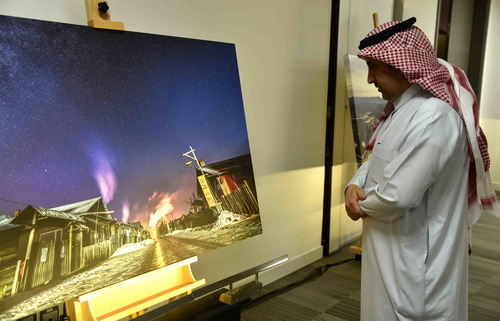by Xinhua writer Gao Wencheng
TEHRAN, Jan. 16 (Xinhua) -- The most recent intensive interactions between China and several Middle Eastern countries will strengthen China's cooperation with those countries and the region as a whole.
Foreign ministers from Saudi Arabia, Bahrain, Kuwait, Oman, Turkey, and Iran, as well as the secretary general of the Gulf Cooperation Council (GCC), have visited China in recent days, signaling the Middle Eastern countries' growing enthusiasm for cooperation with China, as well as their appreciation of China's constructive role in the region and the world at large.
From Belt and Road cooperation to the joint fight against the COVID-19 pandemic, from traditional energy trade to high and new technologies, cooperation between China and Middle Eastern countries continues to advance.
During these most recent interactions, Middle Eastern countries expressed a willingness to better align their development visions with China's. Meanwhile, China and the GCC agreed to conclude free-trade negotiations as soon as possible, and China and Iran jointly announced the start of the implementation of a comprehensive cooperation plan.
These developments bode well for fostering new driving forces in China-Middle East cooperation and leading to more tangible development benefits for all parties involved.
Faced with multiple vexing issues, the Middle East region still has a long way to go before achieving peace and stability.
As Chinese State Councilor and Foreign Minister Wang Yi said in an interview with Xinhua News Agency and China Media Group on Dec. 30, 2021, when China proposed a five-point initiative on promoting peace and stability in the Middle East, it was done with a view to encouraging countries in the region to escape geopolitical rivalry between big powers and achieve self-strengthening through unity.
In contrast to certain countries' notorious track record of interfering in others' internal affairs by inciting conflict between factions, launching coups and "color revolutions," and even waging wars, China always encourages regional countries to pursue independent development paths and resolve regional conflicts through dialogue and consultations.
Such a stance has enjoyed high popularity in the Middle East. In his meeting with Wang last week, GCC Secretary-General Nayef Falah Mubarak Al-Hajraf said the GCC highly appreciates China's important influence and positive role in international and regional affairs.
Frequent exchanges between China and countries in the Middle East reflect the convergence of interests and deepening mutual trust on many levels. In the new year, China will continue to earn more friends in the Middle East and around the world through its commitment to true multilateralism and win-win cooperation.




 A single purchase
A single purchase









